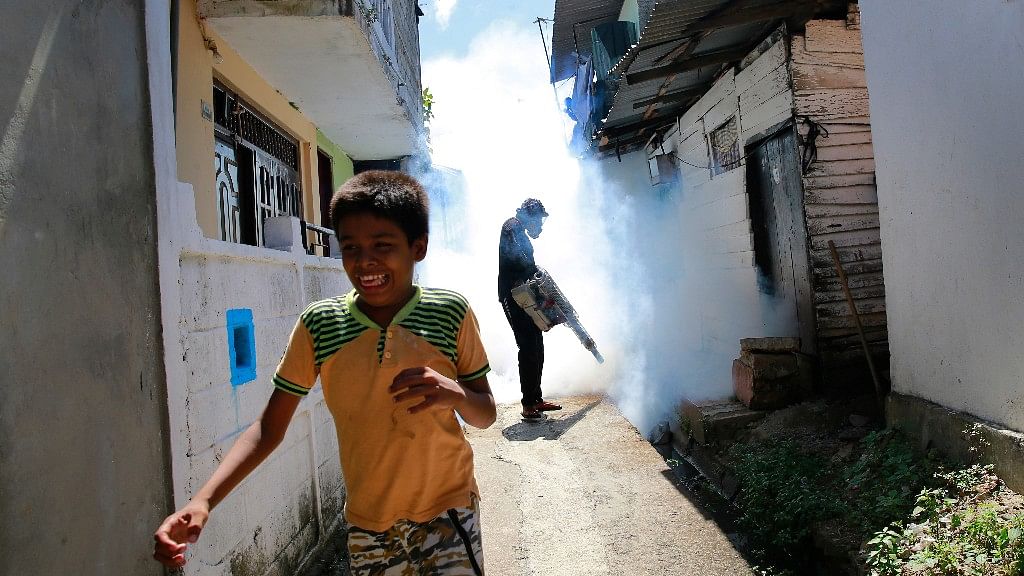300 Dead in Sri Lanka’s Worst Dengue Outbreak; Hospitals Packed
The ministry of health said the number of dengue infections has climbed above 1,00,000 since the start of 2017.

An outbreak of dengue virus has killed around 300 people so far this year in Sri Lanka and hospitals are stretched to capacity, health officials said on Monday.
They blamed recent monsoon rains and floods that have left pools of stagnant water and rotting rain-soaked trash – ideal breeding sites for mosquitoes that carry the virus.
The International Federation of Red Cross and Red Crescent Societies has been scaling up emergency assistance to Sri Lanka with the Sri Lanka Red Cross to help contain the outbreak.
"Dengue patients are streaming into overcrowded hospitals that are stretched beyond capacity and struggling to cope, particularly in the country’s hardest hit western province," Red Cross/Red Crescent said in a statement.
According to the World Health Organization (WHO), dengue is one of the world's fastest growing diseases, endemic in 100 countries, with as many as 390 million infections annually. Early detection and treatment save lives when infections are severe, particularly for young children.
The Sri Lankan government is struggling to control the virus, which causes flu-like symptoms and can develop into the deadly hemorrhagic dengue fever.
“Ongoing downpours and worsening sanitation conditions raise concerns that the disease will continue to spread,” Red Cross/Red Crescent said.
Its assistance comes a week after Australia announced programmes to help control dengue fever in Sri Lanka.
Teams of Red Cross volunteers are working with government officials to provide patient care at hospitals and go door-to-door to raise awareness about the disease and stop its spread.
The International Federation of Red Cross said it had released new disaster emergency funds on Monday to help about 3,07,000 people in the districts of Colombo, Gampaha, and Kalutara where dengue was rampant.
(We all love to express ourselves, but how often do we do it in our mother tongue? Here's your chance! This Independence Day, khul ke bol with BOL – Love your Bhasha. Sing, write, perform, spew poetry – whatever you like – in your mother tongue. Send us your BOL at bol@thequint.com or WhatsApp it to 9910181818.)
(At The Quint, we are answerable only to our audience. Play an active role in shaping our journalism by becoming a member. Because the truth is worth it.)